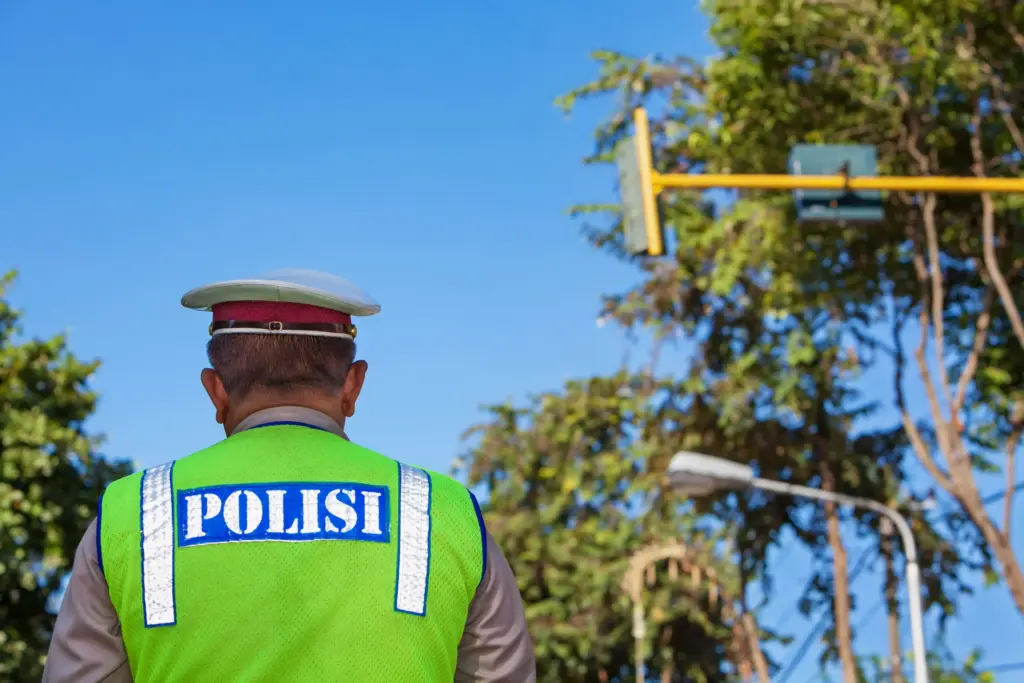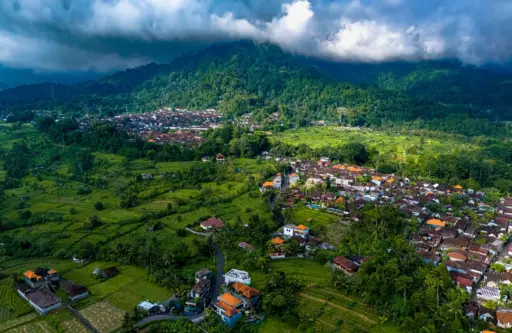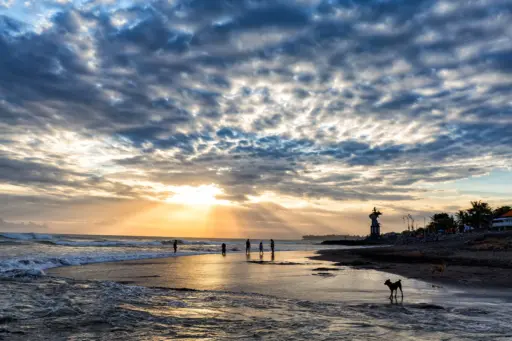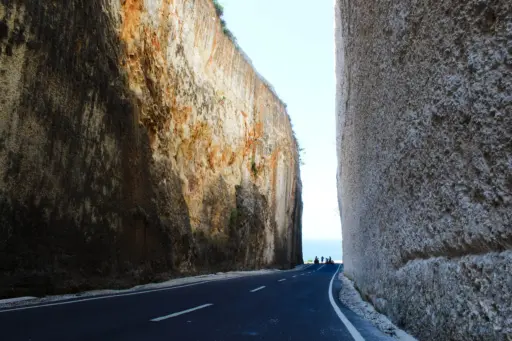Whilst Bali is generally considered safe for tourists, like any destination, it is wise to be aware and prepared. Apart from using common sense, there are a few Bali-specific things to know before you arrive.
Road Safety
Bali’s roads can seem like organised chaos, with scooters, trucks and cars turning a single lane into three or four! Overtaking on blind corners, dogs relaxing in the middle of the road and potholes coming from nowhere are just some of the hazards you will encounter. Lighting at night can be poor or non-existent and the road conditions, particularly in wet weather are best described as treacherous!
· Be aware of:
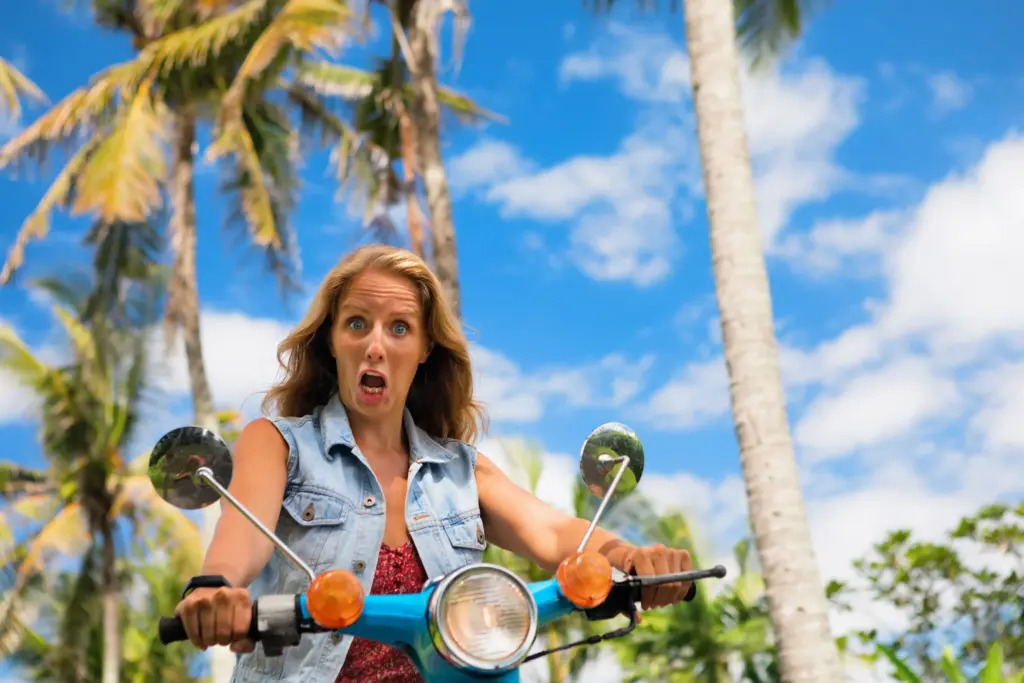
o Scooter riders are everywhere and do not always obey the road rules. If using a scooter yourself definitely wear a helmet, both for safety and to avoid being stopped by the police. If you can bring a helmet from your home country do so as the quality of helmets in Bali is not the best.
o If driving a car yourself only do so if you are confident. Bali traffic is intense, especially in Canggu, Seminyak, Uluwatu and Ubud.
o You will need an International Driver’s Permit (IDP) before you arrive. You may be fined if you are stopped without having one in your possession.
o “Give way” does not appear to exist in Bali, so do not expect other road users to stop or let you in.
o The use of a horn is not usually a sign of aggression, more to make you aware of the other driver or rider’s presence.
o If you are crossing the road as a pedestrian look both ways and look again. Cars and scooters can appear from nowhere so do not cross as though you have the right of way.
o If you have an accident on the road, as the tourist it will always be your fault, even if the other road user was in the wrong.
Health and Medical Care
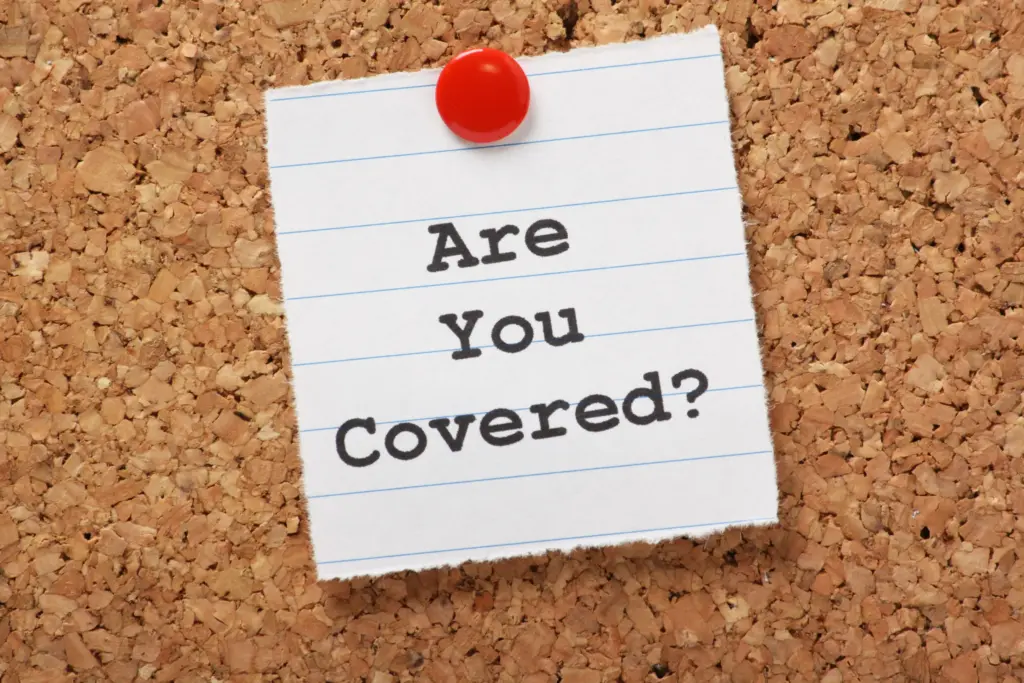
· Before you go:
o Travel insurance is a must. Make sure it covers any adventure sport activities you might do (ATV or white water rafting for example) and/or motorbikes if you plan to ride one.
o Recommended vaccinations include Hepatitis A, Typhoid, Tetanus, and Rabies is also a good idea.
· When in Bali:
o Do not drink the tap water. Brushing your teeth with bottled water is smart. Take particular care if travelling with an infant, especially at bath time.
o “Bali Belly” is common and is more likely caused by the change in diet than a bacteria. Drinks like Pocari Sweat (available everywhere) will help keep you hydrated and I find a few Norit charcoal tablets, a young coconut and sipping a glass of guava juice will settle most bouts. Many Balinese will also drink the watery juice from cooked rice. Of course, if sickness worsens it is best to contact a doctor or visit a medical clinic. There are lots of “Dr Ari” recommendations if you do an internet search and medical clinics are widespread in most tourist areas. Generally the doctor or nurse will prescribe some anti-nausea, an IV of saline for hydration and antibiotics – expect to be feeling much better within 24 hours (and a couple of million rupiah lighter) but best to stick to a bland diet for a few days after.
o Mosquitoes are common and the variant carrying dengue (Aedes aegypti) is prevalent in daylight allows, particularly dawn and dusk. It is a good idea to bring a spray from your home country (DEET products apparently work well) or you can buy repellent spray or creams from most supermarket in Bali. If in the Seminyak area there are a few stores selling a product called “Begone Bug Spray” made by Utama Spice (https://utamaspice.com/). If bitten, I use “Minyak Kayu Putih Cajuput” oil on the bite to settle the itch and inflammation – it is readily available from many minimarts and chemists (apotek).
o For minor issues Guardian or Kimia Farma pharmacies are everywhere and staff are usually helpful…. just avoid falling for the vitamin sales pitch and focus on specific treatments. The pharmacist at the back of the store is normally the best source of help.
o For more serious needs BIMC Hospital and Siloam Hospitals are reputable and have English speaking staff.
Beaches and Water Safety
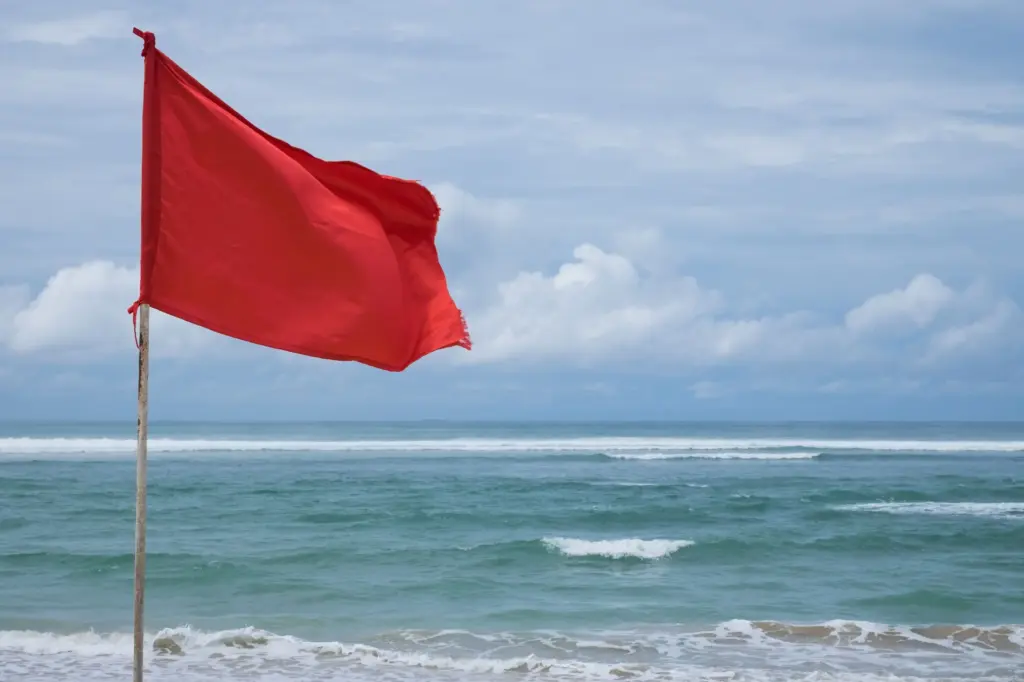
Bali’s beaches are stunning, but they can also be dangerous and unpredictable if you are not careful.
· What to know about the Beaches
o Not all surf beaches are swimmable. Some (like Echo Beach, Uluwatu or the coastline north of Seseh) have strong rips and no lifeguards.
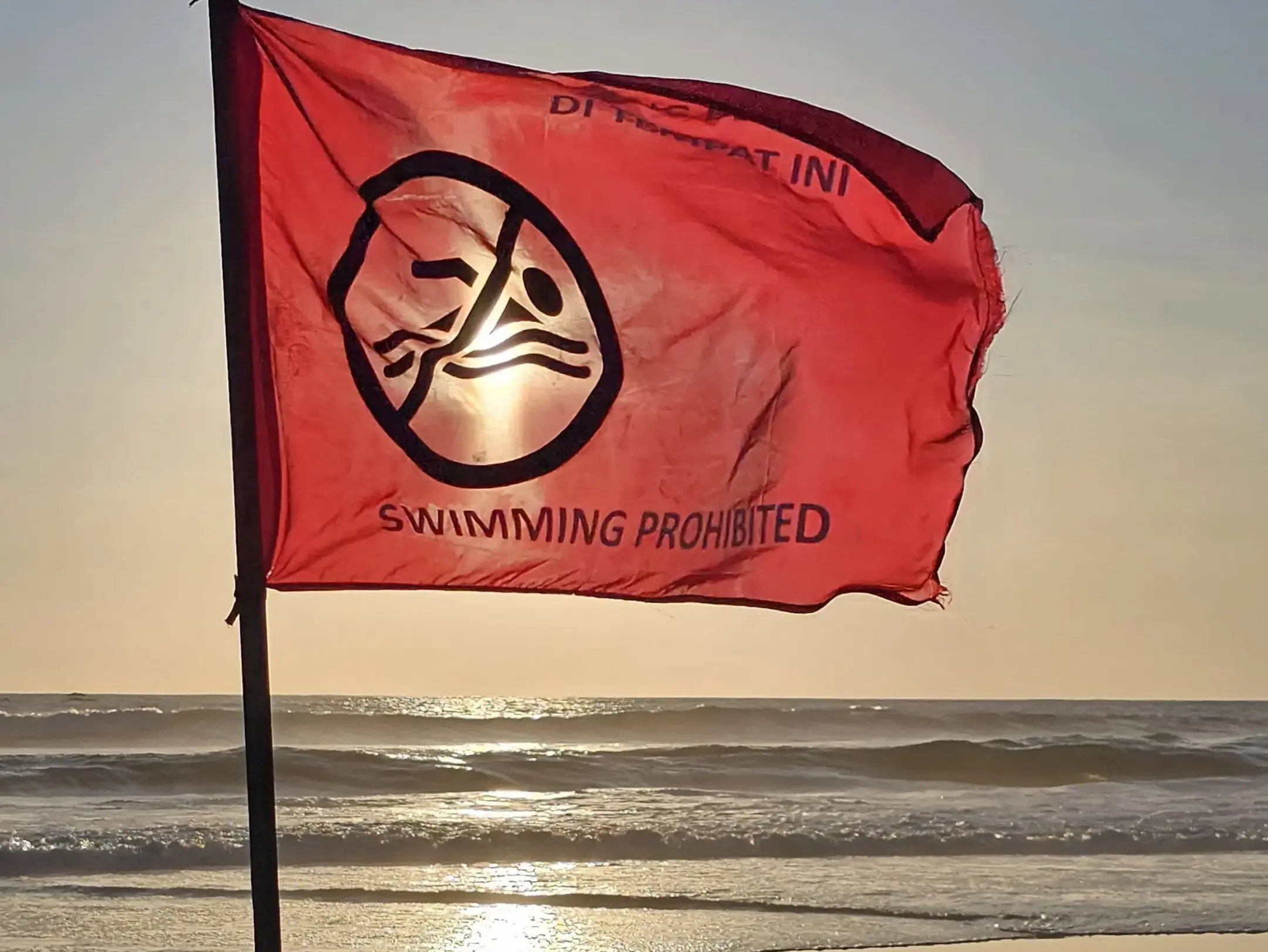
o If there is a red flag, stay out of the water. It means the water is unsafe for swimming. Much of the stretch of beach between Kuta and Canggu has red flags every few hundred metres, so look for the sections between that have red and yellow flags.
o If you are not a strong swimmer stick to the eastern side of Bali – places like Sanur, Candi Dasa and Nusa Dua have nice sandy beaches and gentle waves with limited current.
o Do not swim at night.
o Reef cuts can happen easily so wear reef shoes if you are exploring low tide areas.
o Surfers should be aware of shallow reefs, sharp rocks, and heavy local traffic in the water.
Boats
If visiting one of the nearby islands like Nusa Lembongan or Nusa Penida, going to the Gili Island in Lombok, taking a jukung for a fishing or dolphin-spotting trip, or a phinisi boat in Flores always take personal responsibility for your safety. Do not expect the kind of safety regulations, seaworthiness or equipment standards you have in your home country. It is always wise to allow an extra day between the boat returning to Bali and your flight or onward plans as sea conditions can have an impact.
· Boating Safety
o Research your boat trip in advance and look for recent reviews and commentary around safety. Comfort should be a secondary consideration.
o Make an assessment of weather conditions on the day and do not be afraid to put your personal safety above that of losing money.
o Familiarise yourself with all exits when you first get on the boat.
o Listen to the safety briefings (if there are any).
o Either wear a lifejacket or know where one can be accessed immediately.
o If prone to seasickness it is best to take a tablet around half an hour before getting on the boat. Ginger tablets work well and there are other tablets available from local chemists. Sit outside to get fresh air, watch the horizon and avoid being at the back of the boat or near fumes from the engine.
o Generally sea conditions are more settled in the mornings, so where possible, seek to do any trips before midday.
o Whilst boating incidents happen, in reality they are few and far between; the above is intended only to reduce the likelihood and make you prepared should it be “your unlucky day”!
Alcohol Safety
Most bars and beach clubs in Bali serve drinks that are safe, but there are some key warnings to keep in mind:
· Avoid local spirits from unknown or dodgy venues. Some cheap alcohol may be home-brewed and toxic (for example arak mixed with methanol).
· Only drink cocktails at reputable places. Do not risk your health for a cheap night out.
· Stay hydrated. Bali sun + alcohol = nasty hangovers!
· Stick to bottled beer like Bintang, or imported spirits if you are unsure. If something tastes weird, stop drinking it.
Drugs in Bali
Just don’t!!! Indonesia has extremely strict drug laws, and Bali is no exception. Be aware of undercover police, scams, or sellers who are informants. Even small amounts of illegal drugs can lead to arrest, a lengthy period of incarceration just waiting for trial, jail time, or even the death penalty. It is simply not worth the risk. Many tourists have ended up in prison thinking they could get away with something “small.”
Common Sense and some Pro Tips
· Lock up your valuables with your own equipment and resources – use hotel safes cautiously.
· Do not flaunt expensive possessions.
· Watch for scams – especially at dodgy money changers. Use only authorised places with “No Commission” signs.
· Trust your gut – if something feels off, walk away.
· Part of the appeal of Bali is the seeming absence of rules. Be an adult and ask yourself if you would make the same choices at home before you do something risky.
· If you are with someone who is very badly injured consider if it is better to get them in a taxi or car straight away rather than wait for an ambulance to get them to hospital.
· Do not expect locals to act rationally when there is a major incident – calming a situation and giving direction where appropriate will usually lead to a good outcome.
Useful Numbers in Case of Emergency
· Police: 110 (or +62 110 if using an international number), 112 will work also.
· Ambulance: 118 or 119, 112 will also work.
· Kuta Tourist Police Post: (0361) 7845988
· Sanur Tourist Police Post: (0361) 8531960
· Nusa Dua Tourist Police Post: (0361) 7442622
· Ngurah Rai Airport Tourist Police: (0361) 751023
· The Tourist Assistance Centre is a good starting point if unsure where to direct your enquiry: (0361) 224111
Bali is as safe as you make it. Most travellers have an unforgettable experience by mixing adventure with common sense. Respect the local culture, stay aware, and you will leave with memories, not mishaps.
